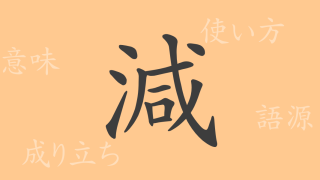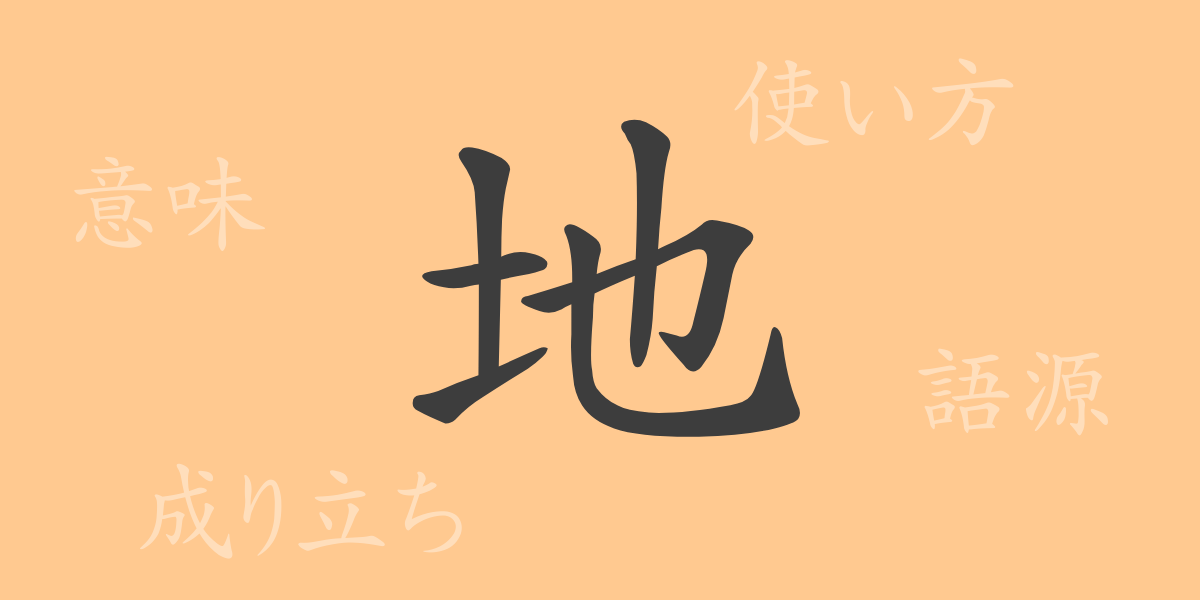Kanji in the Japanese language enrich the world of words with the depth of their meanings and sounds. Among the commonly used kanji, “地(ち) (chi)” holds a particularly high frequency of use and encompasses a wide range of meanings, closely related to the daily lives of Japanese people. In this article, we will explore the charm of the kanji “地(ち) (chi),” from its origin and meaning to its usage, and delve into idioms and proverbs that resonate with the Japanese heart.
Origin of “地(ち) (chi)”
Exploring the origin of the kanji “地(ち) (chi)” is akin to understanding its historical significance. In ancient China, “地(ち) (chi)” was used to mean “land.” The character combines “土(つち) (tsuchi)” meaning soil, with “也(や) (ya),” which broadens its meaning. “也(や) (ya)” acts as a particle indicating a state, thus “地(ち) (chi)” came to represent land itself or concepts related to land.
Meaning and Usage of “地(ち) (chi)”
The kanji “地(ち) (chi)” primarily means “land” or “place.” However, its usage extends far beyond, appearing in contexts like “地位(ちい) (chii)” meaning status, “地平線(ちへいせん) (chiheisen)” meaning horizon, and “地球(ちきゅう) (chikyuu)” meaning Earth. It is also often used as a suffix, such as in “勉強地(べんきょうち) (benkyouchi),” to indicate a characteristic or state of a person.
Readings, Stroke Count, and Radical of “地(ち) (chi)”
The kanji “地(ち) (chi)” has several readings, which vary depending on its usage.
- Reading: The On’yomi (音読み) reading is “チ(ち) (chi),” and the Kun’yomi (訓読み) reading is “じ (ji).”
- Stroke count: “地(ち) (chi)” consists of 6 strokes.
- Radical: The radical is “土(つちへん) (tsuchi hen),” which relates to soil or earth.
Idioms, Proverbs, and Expressions Using “地(ち) (chi)” and Their Meanings
There are numerous idioms, proverbs, and expressions containing “地(ち) (chi),” each illustrating the richness of the Japanese language. For example, “地道な努力(じみちなどりょく) (jimichi na doryoku)” emphasizes the importance of steady effort, while “地を這うよう(ちをはうよう) (chi wo hau you)” describes a very low position or state. Additionally, “地に足がつかない(ちにあしがつかない) (chi ni ashi ga tsukanai)” metaphorically depicts a state of not being grounded in reality.
Summary of “地(ち) (chi)”
The depth of meaning contained in a single kanji character and its broad range of uses greatly expand the possibilities of language. In Japanese, the use of “地(ち) (chi)” goes beyond merely indicating land or place; it is also instrumental in expressing people’s lives, psychological states, and natural phenomena. By paying attention to words and expressions that include “地(ち) (chi)” in daily life, one can gain a deeper understanding of its rich meanings.

























